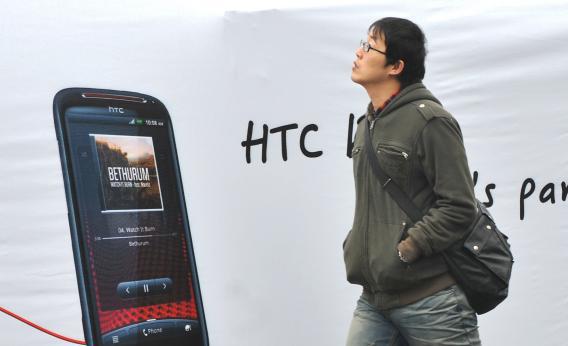Another day another extension of patent monopoly rights as the U.S. International Trade Commission rules in favor of Apple and against HTC on the subject of so-called “data tapping” technology. The “technology” in question is the way that on a modern smartphone if you read a phone number in an email, on a web page, or in a text message the number will display as a kind of hyperlink. Click the number, and you can call. Similarly, a date and time will appear as a clickable link that will swiftly take you into your calendar ap and schedule an appointment. These features obviously don’t go to the core of Android’s ability to compete with iOS devices but they are clever and useful and work perfectly well in both the Android and iOS (and presumably Windows Phone) ecosystems, so it was very smart of Android phone makers to imitate it.
It’s important to note that when courts or the ITC rule that Apple has a patent on “technology” like this, that’s not the same as saying that they have a copyright. Nobody is accusing HTC or anyone else of copying Apple’s code. What they did was see impressive functionality and set about to implement it independently. What’s more, a patent suit doesn’t even require legal proof that there was any kind of copying at all—independent discovery of rival implementations of a similar function is equally banned.
In the long run, all the smartphone litigation isn’t going to end up giving a decisive advantage to any of the incumbent players. Everyone is going to lose some suits and win some suits and cross license some technology. But there are still over six billion people in the world who don’t have a smartphone, including the majority of Americans and the majority of Europeans. That means in principle there’s still ample room for new companies to get in the game. Except there isn’t if all the basic functions a customer might want a smartphone to do have already been parceled out as patent monopolies to one firm or another. In the world we’re heading for any innovative sector will have a very brief wild west phase until a handful of companies get rich enough to lawyer up and start suing everyone, and then the market closes down.
